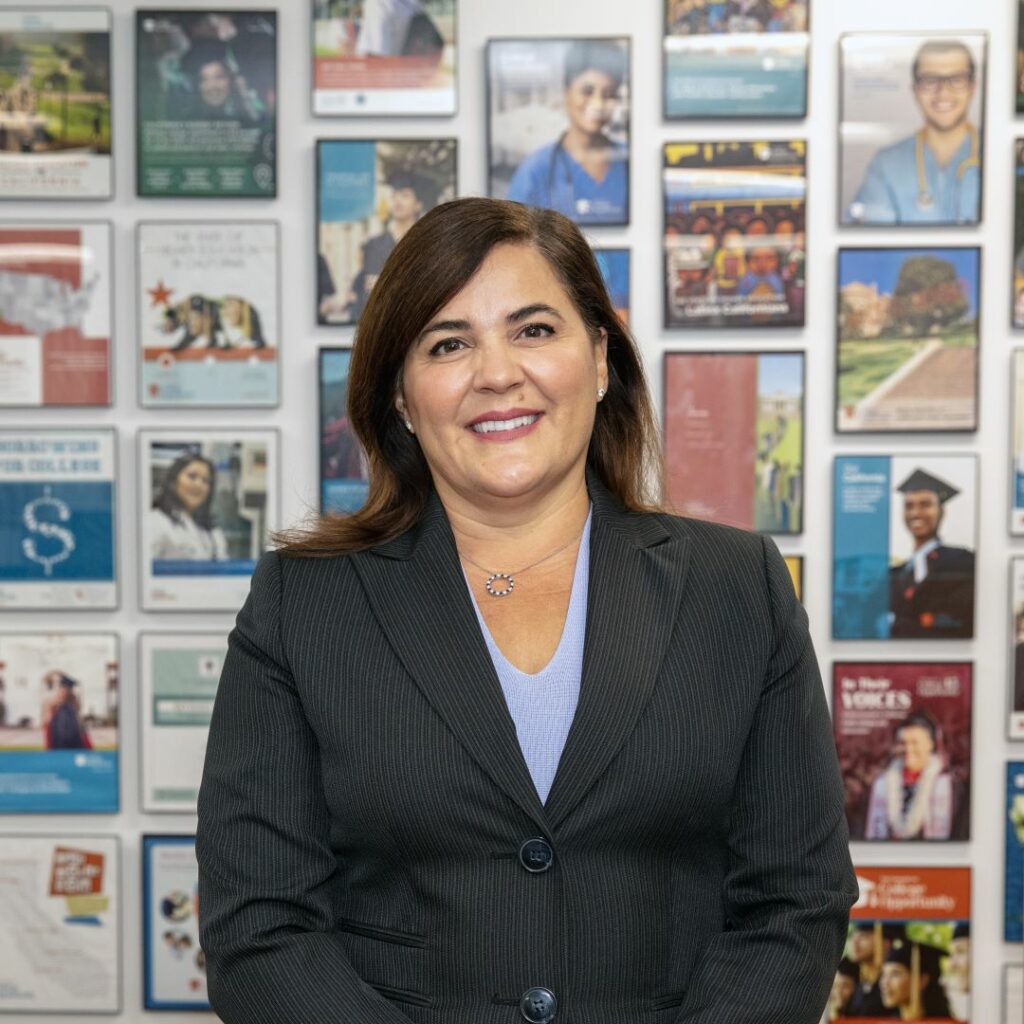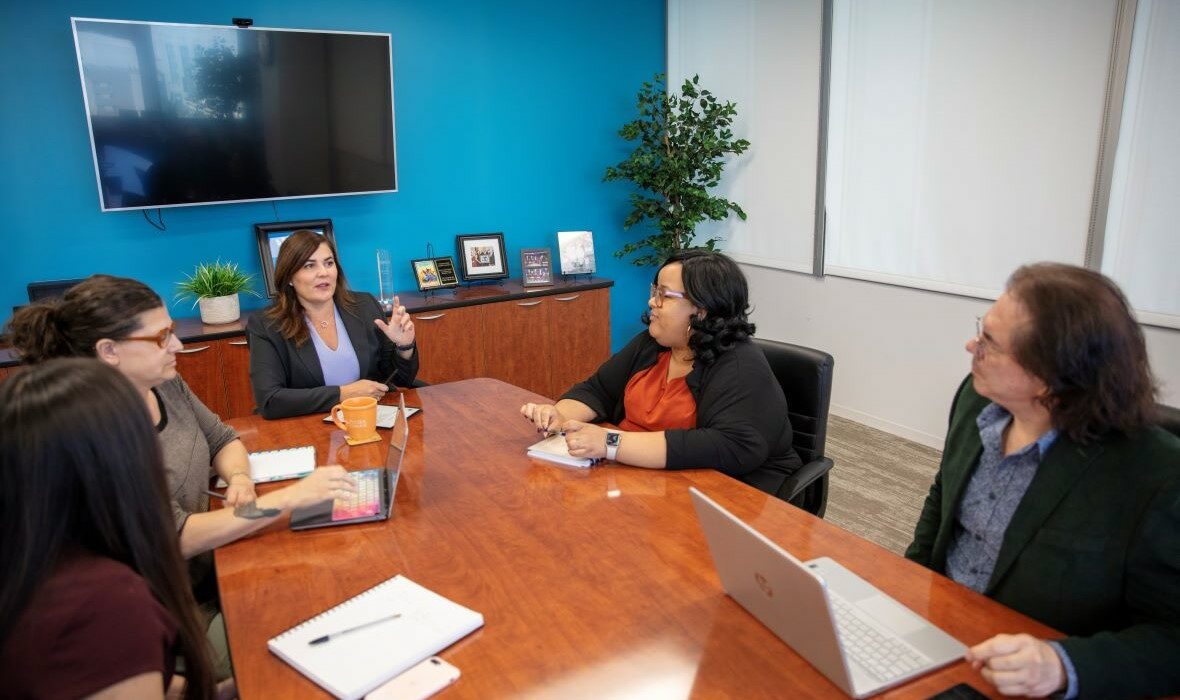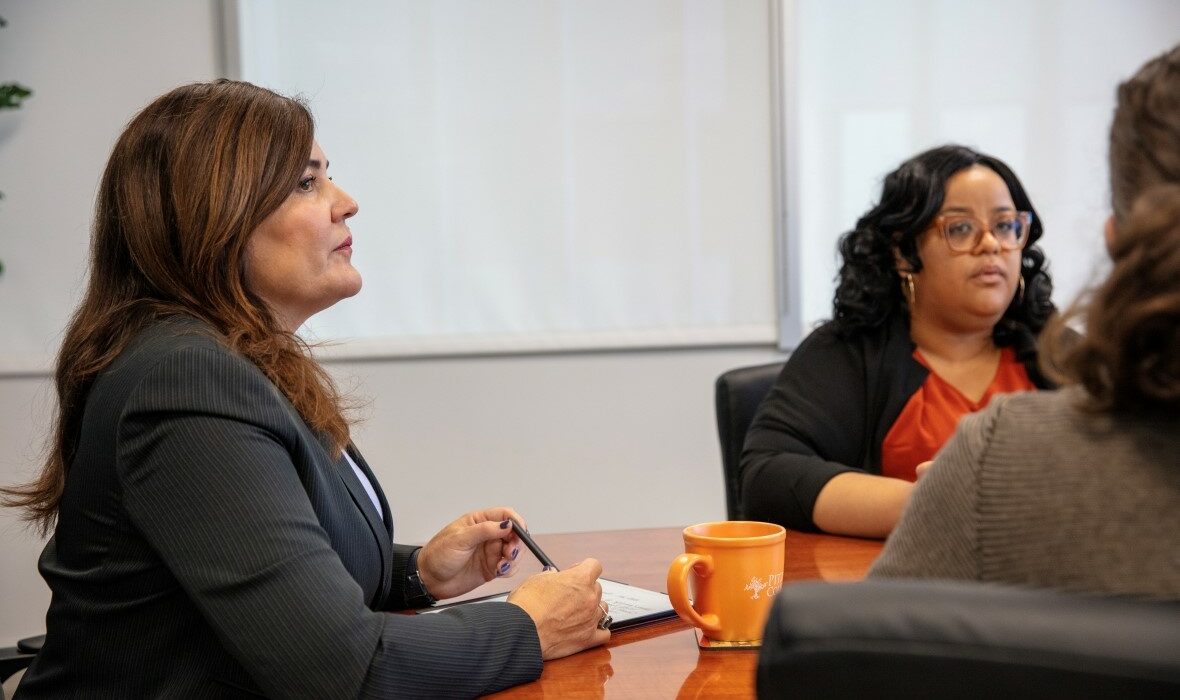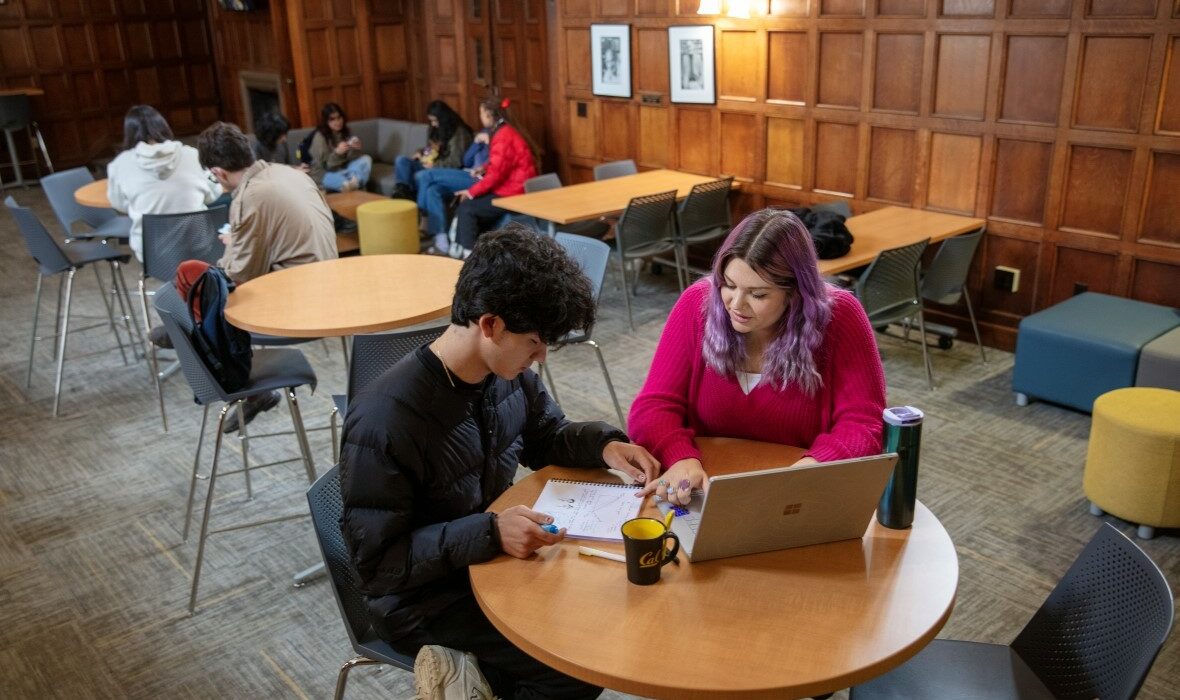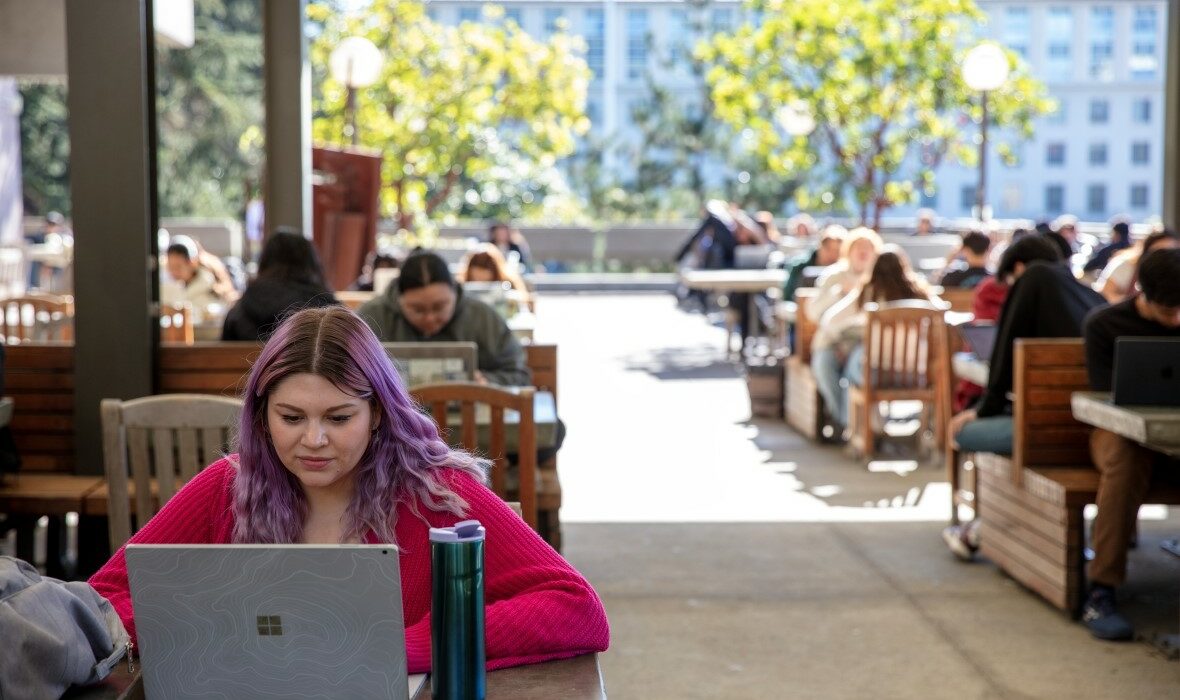Expanding college access and completion through advocacy, research, and coalition
building
Overview
Michele Siqueiros grew up seeing her hardworking mother, an immigrant and seamstress, struggle with economic and personal hardship. The first in her family to go to college, Siqueiros initially thought she was lucky to get there. As she got older, she realized it was the support of family, mentors, programs, and policies – including affirmative action, financial aid, and even the volunteers who helped her fill out her FASFA forms – that made her path to college possible. When California voted to ban affirmative action in public universities, Siqueiros was attending UCLA on an affirmative action fellowship. She recognized that the path to college would be more difficult for the next generation of students and has since dedicated her career to fighting for college access and success.
Over her 20-year tenure at The Campaign for College Opportunity, she has championed policies and initiatives that have yielded tangible results, including clearer transfer pathways between community colleges and the CSU system, a public community college scorecard to make student progress and success metrics transparent, and crucial legislation promoting student success at community colleges. As The Campaign’s research projects that California will face a shortfall of 1.65 million workers with college degrees by 2030 , their role is more crucial than ever. The Campaign is dedicated to ensuring equitable access and success in college, particularly for Latinx, Black, underrepresented Asian American and Native Hawaiian/Pacific Islander (NHPI), and American Indian/Alaska Native (AIAN) students.
“We organize a coalition of unlikely allies that advocate for student-centered policies so that more students can not only access college, but graduate.”
Primary Regions Served
Challenge
- College graduates are more likely to be employed, have health insurance, own a home, and earn a significantly higher income than their peers with only a high school diploma.[1] [2] However, access to a college degree remains inequitable.
- Latinx, Black, and first-generation students, as well as those from families living on low incomes, are underrepresented in higher education, primarily due to unequal access to college preparation and socioeconomic barriers.[3]
- California’s economy depends on a well-educated workforce, and The Campaign’s research suggests the state may face a deficit of 1.65 million workers with college degrees and credentials by 2030.[4] This is due partly to demographic shifts, as an increasing portion of the state’s adult population will come from groups that have historically been underrepresented in higher education.[5]
- California’s higher education systems – The University of California (UC), the California State University (CSU), the California Community Colleges (CCC), and private institutions – operate independently, creating a siloed landscape that makes it difficult to build consensus on reform and pass legislation.
Innovation
- Using a powerful combination of policy advocacy, research, communications, and coalition-building, The Campaign addresses the challenges and consequences of California’s public higher education system for underserved students.
- Through its coalition-building efforts, The Campaign operates Higher Education Engagement Hubs that unite civil rights, equity, business, student, and community organizations to champion student-centered policies. The Hubs focus on community college equitable placement, simplifying transfer implementation, college access, and institutional accountability.
- The Campaign also promotes transparency and accountability in the higher education system by collecting and analyzing data on student outcomes and producing research and publications to inform others about the challenges and opportunities facing higher education in California.
Impact
- The Campaign advocated for the development of a pathway to earn an associate degree and transfer from community colleges to the CSU system. More than 500,000 students have leveraged the transfer pathway.
- The Campaign contributed to a successful campaign to eliminate use of the SAT/ACT in admissions at the UC system and headed a coalition of advocates that culminated in the CSU system ending the SAT/ACT use for admission.
- As a result of The Campaign’s advocacy efforts, Assembly Bill 705 passed in 2017, which prioritizes placement into transfer-level over remedial courses in community colleges. Completion of transfer-level coursework has since dramatically increased, especially for Black and Latino students.
- The organization created a first-of-its-kind community college scorecard in California to make student progress and success metrics transparent and disaggregated by race for each community college campus in California
Opportunity
- Given the state’s diverse population, addressing racial and ethnic inequities in higher education access and completion is essential for ensuring equitable economic opportunity. The Campaign’s advocacy to improve the process for transferring from community colleges to four-year institutions is crucial for bridging this gap.
- With its track record of successful advocacy efforts and robust coalition of partners, The Campaign is well positioned to help state and education leaders improve college access and completion rates for underrepresented student groups, and in turn address the growing need for a more diverse and skilled workforce in California.
- In June 2023, the U.S. Supreme Court made a landmark decision that curtailed the consideration of race in college admissions. This has far-reaching implications, including for California’s private universities. In response, The Campaign is running a national initiative — Affirming Equity, Ensuring Inclusion, Empowering Action — to help leaders develop practical implementation plans and prepare for potential legal challenges related to race-conscious admissions.
The written profile and video reflect the work of the leader(s) the year they received a Leadership Award. Please contact the leader(s) for current information.
